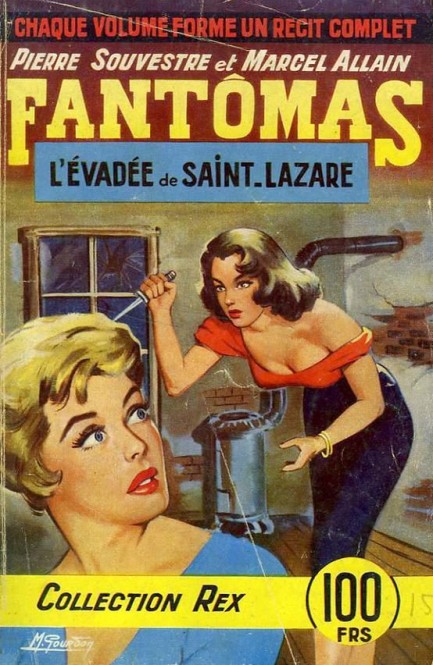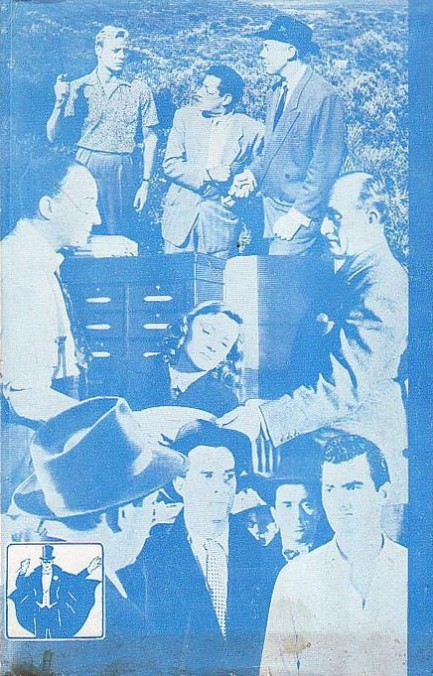| Vintage Pulp | Oct 24 2019 |


It's been a while since we featured Michel Gourdon's work, so above you see a cover for L'évadée de Saint-Lazare by Pierre Souvestre and Marcel Allain, for Paris based publishers Éditions Robert Laffont, number 29 in its series Collection Rex. The book is about a ruthless criminal named Fantômas, who wears a blue mask and black gloves. He was one of the most popular creations in the history of French literature. Souvestre and Allain wrote thirty-two books about him between 1911 and 1913. That's not a typo. They wrote fast, about a book a month, and were greatly helped by the money earned by selling him to the movies, where he became a stalwart of France's early silent cinema. Éditions Robert Laffont republished the books during the 1960s, with Michel Gourdon illustrating all of them, and the above edition coming in 1963. Rear cover below. We'll probably get back to Fantômas later.




































































